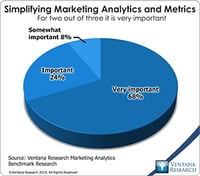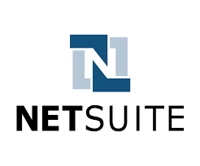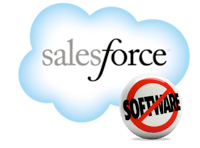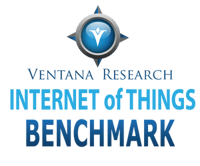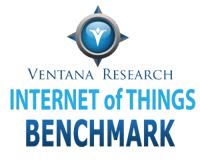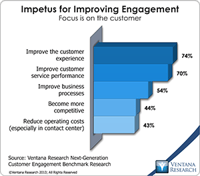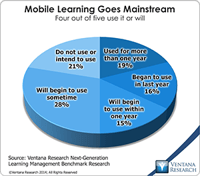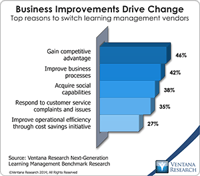Managing marketing performance is anything but simple. It requires establishing a unified approach to assess the outcomes of initiatives and projects and compare results with investments in marketing people and campaigns. In general, while performance management has been conducted effectively at the corporate levels, it has been a challenge for most lines of business, marketing departments included.
Read More
Topics:
Social Media,
Marketing,
Marketing Performance Management,
Marketing Planning,
Operational Performance Management (OPM),
Business Analytics,
Business Intelligence,
Uncategorized,
Business Performance Management (BPM),
CMO,
Customer Performance Management (CPM),
Demand Generation,
Sales Performance Management (SPM)
It’s widely agreed that customer experience is now the most important dynamic for business. Any organization that wants to retain loyal and even vocal customers should do everything possible to ensure and maintain customer satisfaction. Software companies, especially those that promise to provide CRM and effective interactions across any channel at any time, should be good examples of embracing the methods they prescribe for using their products. But do they?
Read More
Topics:
Social Media,
Customer Experience,
HCM,
Human Capital,
Human Capital Management,
Marketing,
NA14,
NetSuite,
Operational Performance Management (OPM),
Zach Nelson,
Cloud Computing,
Governance, Risk & Compliance (GRC),
Customer Performance Management (CPM),
Financial Performance Management (FPM),
HR,
HRMS,
Sales Performance Management (SPM),
TribeHR,
Workforce Performance Management (WPM)
Organizations in all industries face various difficulties in managing product information. The most serious is providing complete, engaging information to consumers and customers on the internet. Newly developed products, mergers and acquisitions, changes to pricing and promotions in online commerce spur business growth, but these factors also increase the amount and complexity of product-related data and content. In addition the digital economy offers a new generation of services that are sold...
Read More
Topics:
Big Data,
Operational Performance Management (OPM),
PIM, Product Information Management, Sales, Market,
Business Analytics,
Cloud Computing,
Uncategorized,
Business Performance Management (BPM),
Customer Performance Management (CPM),
Financial Performance Management (FPM),
Information Management (IM),
Information Optimization,
Sales Performance Management (SPM),
Supply Chain Performance Management (SCPM)
Through a federal rule referred to as “Overtime Rule” and part of Title 29 regulations was issued on May 18th, 2016 by the Department of Labor (DOL), the Obama administration now mandates that unless they meet criteria for exemption, employees paid less than $47,476 ($22.825 per hour) are entitled to overtime pay when they work more than 40 hours per week. The rule change, which goes into effective on December 1, 2016, is intended to apply to executive, administrative and professional...
Read More
Topics:
Governance,
Human Capital,
Human Capital Management,
Operational Performance Management (OPM),
Overtime Rule,
Part 541,
POTUS,
Wage and Labor,
Business Analytics,
Cloud Computing,
Governance, Risk & Compliance (GRC),
Uncategorized,
Contingent Labor,
Customer Performance Management (CPM),
Department of Labor,
Final Rule,
Financial Performance Management (FPM),
FLSA,
President Obama,
Sales Performance Management (SPM),
Supply Chain Performance Management (SCPM),
Workforce Management,
Workforce Performance Management (WPM),
Workforce Planning
I have been meaning to write about Salesforce since its Dreamforce 2015 conference. Salesforce provides a platform, tools and applications for business and IT who claims to be the ‘no software’ company which as you will read is exactly what happened on May 10th. Heck, Salesforce is making a lot of advances on its platform, its applications and even with Analytics and the Internet of Things. These changes are at the center of what at our analyst firm calls digital business innovation. Much of...
Read More
Topics:
Sales,
Salesforce.com,
Marketing,
NA14,
Analytics,
Business Analytics,
Business Collaboration,
Business Mobility,
Cloud Computing,
Customer Service,
IOT,
CRM,
Customer Performance Management (CPM),
Sales Performance Management (SPM)
Organizations are facing a digital transformation, as I have written, that is rapidly changing the applications and services that businesses use to operate and deliver information. This new digital generation addresses the expectations of consumers and business partners for information and service in real time. One example of it is enterprise messaging. Recently I wrote about the shift to this technology and the challenges it poses for organizations that lack sufficient skills. However, new...
Read More
Topics:
Big Data,
Social Media,
Enterprise messaging, Internet of Things, IoT, mid,
Operational Performance Management (OPM),
Business Analytics,
Business Collaboration,
Cloud Computing,
Governance, Risk & Compliance (GRC),
Uncategorized,
Business Performance Management (BPM),
Customer Performance Management (CPM),
Financial Performance Management (FPM),
Information Management (IM),
Sales Performance Management (SPM),
Supply Chain Performance Management (SCPM)
Enterprise messaging is the technology backbone of communications for applications and systems within and between organizations. Both its importance and its complexity are growing as organizations increasingly have to provide real-time responses to business customers and consumers as well as their own business professionals who support them and their internal supply chains. The variety of use cases for enterprise messaging also is growing rapidly, expanding to the Internet of Things (IoT)...
Read More
Topics:
Big Data,
Social Media,
Enterprise messaging, Internet of Things, IoT, mid,
Operational Performance Management (OPM),
Cloud Computing,
Governance, Risk & Compliance (GRC),
Operational Intelligence,
Uncategorized,
Business Performance Management (BPM),
Customer Performance Management (CPM),
Information Management (IM),
Information Optimization,
Supply Chain Performance Management (SCPM)
As the global economy transforms into a world of digital services that cross industries, including those that provide value-added services for physical products, managing the complications that arise from digital browsing, selection and purchasing of goods, as well as activation, billing and servicing of accounts, becomes a challenge. Organizations have to not just engage customers but provide satisfying experiences that keep them coming back. Our benchmark research on next-generation customer...
Read More
Topics:
Operational Performance Management (OPM),
Subscription, Recurring Revenue, Zuora,
Business Analytics,
Uncategorized,
Business Performance Management (BPM),
Customer Performance Management (CPM),
Financial Performance Management (FPM),
Sales Performance Management (SPM)
The learning management system (LMS) offers opportunity for organizations to progressively enhance the effectiveness of their workforce. An advanced LMS can be more than a digital version of an organization’s training programs for specific jobs or to achieve compliance with policies and regulations. It can provide dynamic yet informal learning that business units can create, deploy and sustain through their own efforts. Last year I outlined the benefits of this new generation of learning...
Read More
Topics:
Human Capital,
LMS,
Operational Performance Management (OPM),
Business Analytics,
Business Collaboration,
Cloud Computing,
Uncategorized,
Business Performance Management (BPM),
Customer Performance Management (CPM),
Financial Performance Management (FPM),
Sales Performance Management (SPM),
Supply Chain Performance Management (SCPM)
In this highly competitive age, optimizing the potential of workers is essential. A learning management system (LMS) can increase both knowledge and engagement. Our benchmark research on next-generation learning management systems finds that adopting one can help almost half (46%) of organizations gain a competitive advantage, and more than one-third (35%) said it assists in helping customers. Expanded use of learning can engage customers, partners and others who need more information about an...
Read More
Topics:
Human Capital,
Meridian, Learning, Learning Management Systems, L,
Operational Performance Management (OPM),
Uncategorized,
Business Performance Management (BPM),
Customer Performance Management (CPM)
